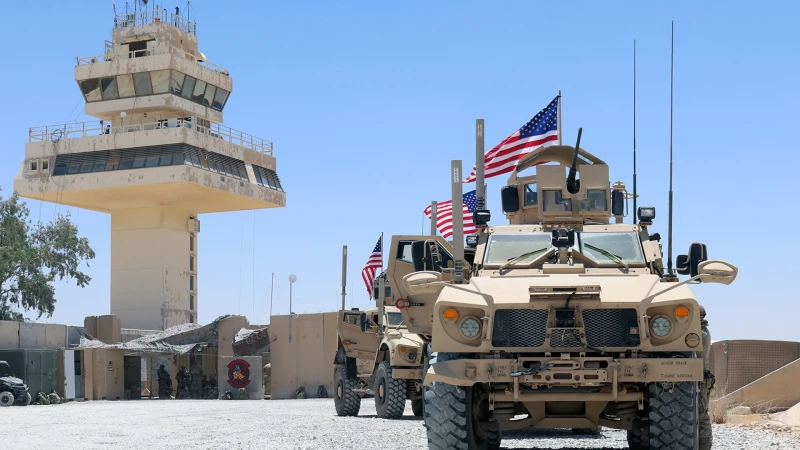ERBIL, Kurdistan Region of Iraq - Since the October 2019 Tishreen protests, which had Dhi Qar as their epicenter, the province's political landscape has changed dramatically. Seven years later, most of the traditional party headquarters that were burned or demolished during the unrest remain closed or absent from the scene.
Despite two electoral cycles, the 2021 parliamentary and 2023 local elections, and preparations for the 2025 vote, those headquarters have not returned to their former status. Local observers attribute this to the sensitive public mood in Dhi Qar and fears of reigniting street anger.
Political writer and analyst Hussein al-Aamil said, “Political parties in Dhi Qar are still paying the price for their past positions, especially after failing to fulfill their electoral promises and backing away from the slogans they raised during earlier campaigns.” This, he noted, has led to “an almost complete loss of public trust.”
Speaking to The New Region about the province’s political scene, Aamil added, “Most political entities have shown no genuine concern for the interests of the nation or citizens. Their performance in recent years has been marked by clear negligence of people’s rights and failure to respond to the demands of the street, which reached its peak during the Tishreen (October) movement about five years ago.”
He noted that “most party headquarters in the province remain closed even today, despite the time that has passed since the protests began,” describing this as “a clear sign of the continued disconnect between parties and the local street, and perhaps an indication of their fear of confronting public anger accumulated over years of unfulfilled demands and absent reforms.”
Aamil concluded, “What we are witnessing today is a natural outcome of accumulated political failure, the lack of national vision, and the absence of courage among many political groups to acknowledge their mistakes.” He stressed that “the street in Dhi Qar is no longer the same; political awareness has risen sharply, making it difficult to recycle the same faces and promises without paying a heavy political price.”
On October 2, 2019, Dhi Qar recorded one of the most dramatic escalations among Iraqi provinces, as several political party and armed faction offices were set ablaze during the second day of the Tishreen protests, which swept Iraqi cities demanding reform and anti-corruption measures.
The attacks at the time targeted prominent offices in Nasiriyah belonging to groups such as the Badr Organization, the Islamic Dawa Party, the Iraq Organization, the Tayyar al-Hikma, and the Iraqi Communist Party, along with facilities linked to Asaib Ahl al-Haq, Kataib Hezbollah, and other armed factions.
This escalation in Dhi Qar reflected the depth of growing public anger toward the political class and became one of the defining moments of the Tishreen uprising, which marked a sharp turning point in the relationship between Iraq’s traditional parties and the street.
Meanwhile, Razaq Ubaid, head of the regional office of the Tammuz Organization for Election Monitoring in Dhi Qar, told The New Region that “the Tishreen movement left a profound impact on the province’s political and electoral reality,” noting that “the attacks on party offices during that period created a state of political retreat whose effects are still evident today.”
Ubaid said that “Nasiriyah was a major focal point of the Tishreen movement, and the protests that accompanied it reshaped the way people interacted with political entities. Despite these changes, political blocs still retain their traditional base and are fully aware of their voting strength in the province.”
He added that “even the new faces entering the electoral race understand how difficult it is to compete with parties that have deep strategic roots and well-established organizational networks.”
The demonstrations in al-Habboubi Square in central Nasiriyah became the longest-running protest site in Iraq, where more than 130 protesters were killed and over 500 injured over the course of several waves of unrest. The square was the last protest site to close in November 2021, after supporters of the Sadrist Movement entered the area and set fire to the protesters’ tents.
This scene turned Dhi Qar into a “symbol” of protest squares across Iraq, maintaining its position as a central hub for demonstrations and calls for change, despite the heavy repression, bloodshed, and sacrifices it witnessed.
Razaq al-Ghazzi, a member of the Islamic Dawa Party, confirmed that the party’s office in Dhi Qar is still operating and active on a daily basis, noting that it is “currently used to receive citizens and manage the party’s affairs.”
Ghazzi told The New Region that “the office served as a headquarters for managing the electoral process during the last elections,” explaining that “the current site is a rented house where meetings and public gatherings are held regularly.”
He clarified that “the absence of a party sign on the building’s facade is due to the property owners’ reservations” but stressed that “the party continues to maintain direct communication with the public from this office.”
Meanwhile, Dr. Qasim al-Shuwaili, a political science professor at Dhi Qar University, said that the coincidence of the electoral process with the province’s relative security calm presents a positive opportunity to focus efforts on ensuring successful elections in a stable environment.
Shuwaili noted that the political scene in Dhi Qar “is still somewhat influenced by the repercussions of the Tishreen movement, which in 2019 forced political parties to choose between two options: either direct confrontation with an angry street or retreating to work behind the scenes.” He added that “many parties chose the latter option, which explains why their headquarters remain closed to this day.”
According to Shuwaili, “the return of parties to a public presence and the reopening of their official offices may not happen before the next parliamentary elections conclude and once the foundations of security and rule of law are firmly established.” He emphasized that “political engagement remains largely confined to party loyalists, while much of society remains disengaged, preoccupied with the ongoing economic and political crises.”



 Facebook
Facebook
 LinkedIn
LinkedIn
 Telegram
Telegram
 X
X


